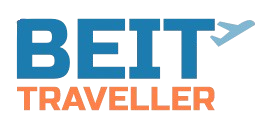In today’s time of demand for efficiency and flexibility, companies in the travel industry cannot function without an enterprise resource planning (ERP) solution. These technologies streamline booking, operations, finance and customer relationship management.
Through this integration, agencies can save time and effort, reduce errors, and increase efficiency, thereby increasing output while reducing overhead.
Simplify integration to improve customer experience
Customer service is one area where travel companies can benefit from an enterprise resource planning system. Agencies can better respond to customer inquiries and confirm bookings when they have access to all relevant customer data in one location.
Customer satisfaction and loyalty are increased due to a more streamlined customer journey, starting with the initial contact and continuing through post-trip follow-up.
Maximize operational productivity
Creating itineraries, issuing tickets and processing payments are just a few of the many manual processes that ERP systems streamline in the travel management industry. Automating these processes can make them run faster and greatly reduce the possibility of human error.
In this way, travel organizations can choose to provide faster support and ensure that the authentic factors are correct, which is very important to maintain good goodwill in the serious travel industry.
Make growth-focused decisions based on data
Data collection and analysis capabilities are also important components of ERP systems. From financial performance to customer preferences, travel agencies can monitor and evaluate a host of factors to provide decision-level intelligence.
This allows them to adjust their offers to better meet market demand.
Taking ERP solutions to new heights
As your travel business expands, managing the various booking, supplier and customer relationships becomes increasingly challenging. Enterprise resource planning (ERP) systems grow with your company, allowing additional services, users, and locations to be added without sacrificing performance.
Because of this scalability, agencies can easily grow their reach and skills, eliminating the usual growing pains.
Promote environmentally friendly practices in the tourism industry
A key factor in promoting sustainable development in the tourism industry is the implementation of enterprise resource planning (ERP) systems. These systems help organizations reduce their carbon footprint by increasing route efficiency and reducing operational complexity.
Additionally, reduced paperwork and unused inventory are two forms of waste that can be reduced through improved resource management. Therefore, in line with global sustainable development goals, tourism companies improve operational efficiency while having a positive impact on environmental protection.
Simplify compliance and security
The travel sector handles sensitive personal and financial information, so security is of the utmost importance. Secure data storage solutions and cutting-edge encryption methods are just two ways that enterprise resource planning (ERP) systems can enhance security protocols.
Travel agents and their clients can have peace of mind knowing that these solutions will enable them to comply with all applicable international legislation and standards. Building and maintaining the credibility of the travel industry requires strict safety measures and compliance.
in conclusion
Finally, enterprise resource planning (ERP) solutions are changing the game in the travel management industry by enabling data-driven planning, improving customer service and optimizing operations.
You can take advantage of these advantages with the help of OTRAMS, an enterprise resource planning (ERP) system designed specifically for the travel industry. OTRAMS helps agencies succeed and grow in dynamic markets, assisting in every aspect of travel management.
Source link

